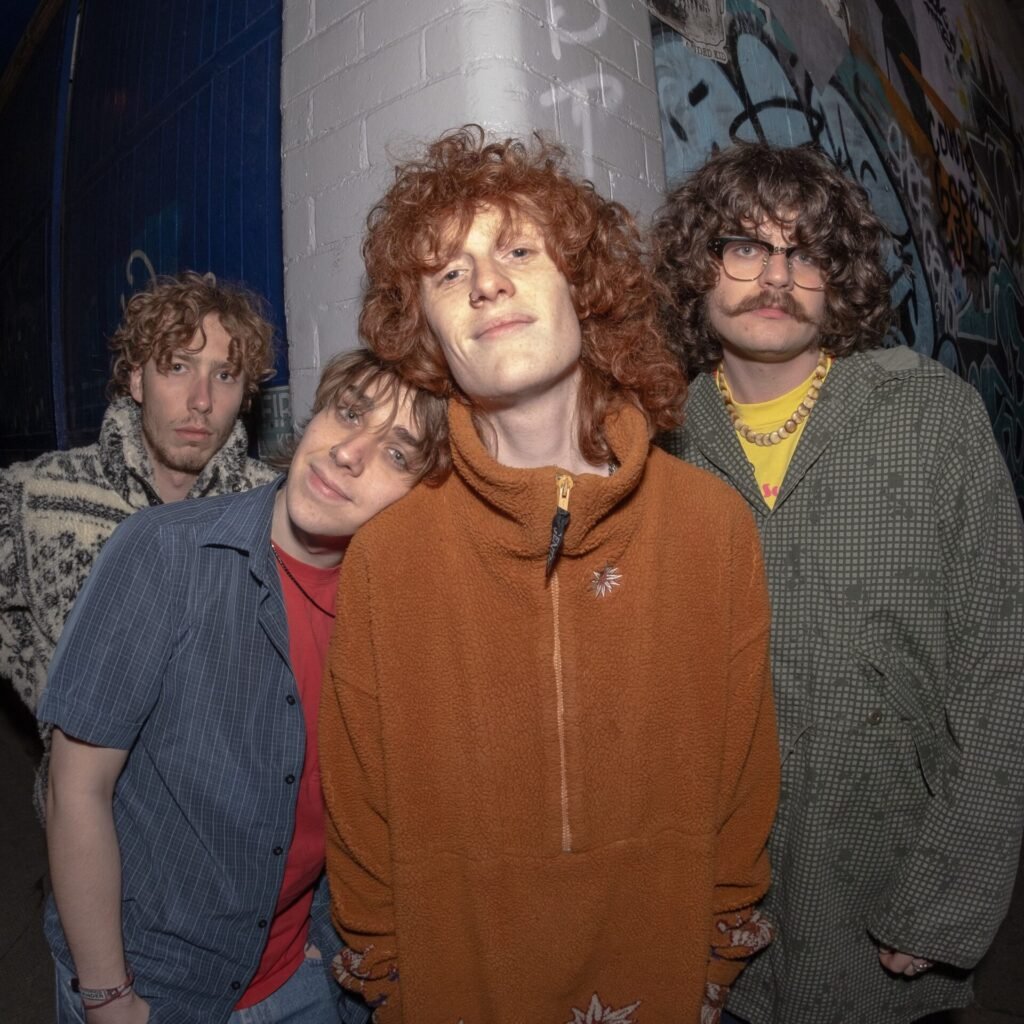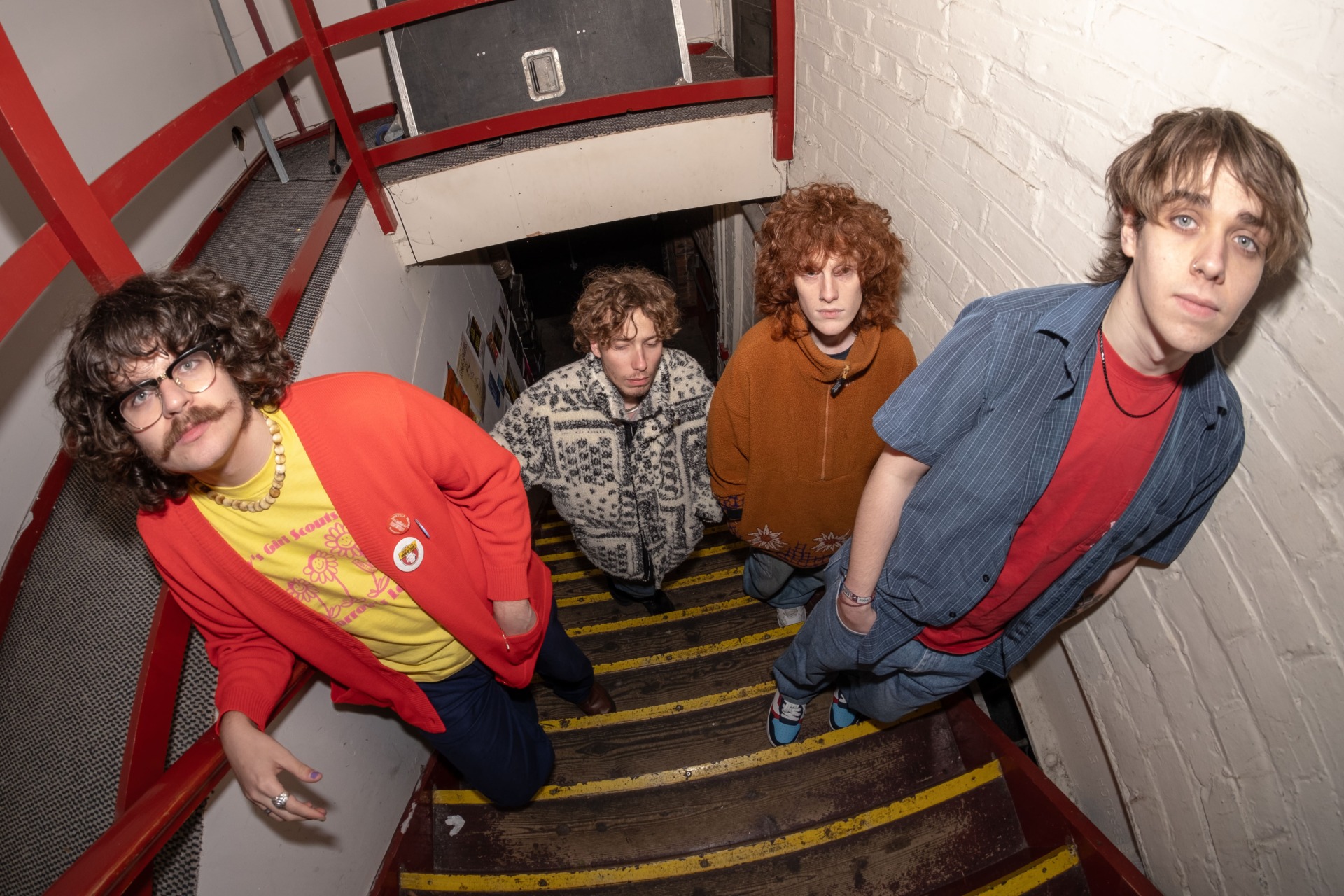Trunk is best characterized by a consistent yet unpredictable fusion of genres and influences. The band intends to depart, and the question remains: “What’s next?” Compositional fluidity is crucial to the band, and it is this quality that keeps them just as enthusiastic, if not more so, than the listener.
It is nearly impossible to overlook the significant influence that the 1990s, for example, have had. Nevertheless, Trunk’s members draw inspiration from a diverse array of cultures, artists, and periods, which is evident in their work.
Trunk have dedicated an incomprehensible amount of time to ensuring that the tracks on their first official body of work, ‘Tembo,’ remain as impeccable as they were when they spent hours on their original concepts in a room together, bonding over their shared passion, following an extensive list of shows across Newcastle and Leeds over the last two years alongside artists such as Foxing and Deb Googe of My Bloody Valentine.
In 2024, there will be a greater emphasis on the development of a more diverse and intense “Trunk sound.” Check out the exclusive Interview below:

1. Who were your first and strongest musical influences and why the name ‘TRUNK?
TRUNK: As a band all our musical influences are rather varied, we all enjoy quite different genres and styles from each other ranging from punk to shoegaze, jazz, Brit pop and much more. We are constantly listening to new music with the intent of expanding our stylistic horizons as band; the real fun challenge is taking all these influences and fitting them to our workflow when writing!
With our upcoming EP, ‘Tembo,’ we’ve been told there’s a strong Pixies influence by those lucky enough to hear our tracks pre-release. But we’ll let the rest of you decide which bands we resonate with when the EP is out at the end of July!
As for our name – now that was a spur of the moment decision! For a long time, we struggled with finding a name that resonated with us and Dylan our drummer blurted out the words ‘Trunk and Onk!’ And we all agreed that Onk was way too daft, so we went with ‘Trunk.’
2. Did you have any formal training or are you self-taught?
TRUNK: Collectively, we’ve always been fixated on playing music and looking up to musicians from an early age really spurred on the desire to do what they do. We’re all self-taught and have gone onto formal training in our later years.
3. What do you feel are the key elements in your music that should resonate with listeners, and how would you personally describe your sound?
TRUNK: Our sound is an amalgamation of the last forty or so years of alternative music, taking influence from early indie, shoegaze, slow core, and anywhere else our listening takes us. Expect to hear deceptively complex songs masked behind walls of fuzz, and a sweet, sweet falsetto that would make Buckley proud.
4. For most artists, originality is first preceded by a phase of learning and, often, emulating others. What was this like for you? How would you describe your own development as an artist and music maker, and the transition towards your own style?
TRUNK: In the early days of the band, we very much wore our influences on our sleeve. We’d jokingly refer to unnamed tracks as the mazzy star one or that one that sounds like the pumpkins. In part this was due to the isolated nature of our song writing process at the beginning, bringing almost fully completed tunes to the band that were very clearly one person’s work. However, now that we’ve started writing more collaboratively, we feel the Trunk sound is really starting to come together, and we’re excited to hone this further with future releases.

5. Could you describe your creative processes? How do usually start, and go about shaping ideas into a completed song? Do you usually start with a tune, a beat, or a narrative in your head? And do you collaborate with others in this process?
TRUNK: Our process generally varies as we write both collaboratively and individually, meaning that ideas are either conceived in the moment, or brought to the table at various stages of development. We’re constantly working out how to best channel our creative flow when it hits. This involves deciding which writing approach to use from song to song e.g., knowing when we should jam out an idea together, or whether one of us should take it away and finish it. We try not to put pressure on every song being a strict four-way collaboration, but rather a pool of ideas where we all feel confident to experiment as we wish by catering to what feels right in the moment.
6. What has been the most difficult thing you’ve had to endure in your life or music career so far?
TRUNK:
It would have to be navigating a work/band balance. We all have different jobs and schedules and as a result never quite have as much time together as we’d like, we’d probably be on album three if we did but that’s just life I suppose.
7. On the contrary, what would you consider a successful, proud or significant point in your life or music career so far?
TRUNK: Finishing this EP of ours is for sure up there. Though, I’d have to say that I was at my proudest when we hosted our all-night festival, “FLESH + BLOOD.” To see so many familiar and unfamiliar faces at a charity event that I put so much of my own time into was quite special, if not somewhat euphoric once we hit the stage.
8. With social media having a heavy impact on our lives and the music business in general, how do you handle criticism, haters, and/or naysayers in general? Is it something you pay attention to, or simply ignore?
TRUNK: I don’t feel like we’ve had to deal with much in the way of criticism in our time as a band, though I do think that the critiquing of a creative output would be difficult for any artist to take on the chin in the beginning. Especially with social media being the all-consuming power that it is, it’s hard for anyone to not get caught up inside that whirlwind.
9. Creative work in a studio or home environment, or interaction with a live audience? Which of these two options excites you most, and why?
TRUNK: Time in the studio & playing shows are equally as important in our eyes. Being with the boys in the studio, bouncing ideas off each other is such a joy. It’s a pleasure to see all our influences come together and result in making something truly special.
As for playing together: Without an audience, our hard work in the studio wouldn’t pay off. There’s no greater feeling than seeing an audience sing, boogie and groove to the roaring sounds we pump out to them through the PA system, not to mention the couple that like to slow dance to our track, ‘Mason Jar!’
Playing our studio crafted songs live and seeing the audience’s reaction is the ultimate joy – it’s so rewarding!
10. Do you think is it important for fans of your music to understand the real story and message driving each of your songs, or do you think everyone should be free to interpret your songs in their own personal way?
TRUNK: Everyone should absolutely be free to interpret the songs as they wish – this is fundamental to art and is why it is so subjective. Speaking as fans and writers, we love to delve into an artist’s background and intentions for a song, this context helps paint a wider picture with more depth and meaning, allowing for a better understanding of their creative process. Although this is important to us, it’s most important that listeners feel free to enjoy the music however they see fit.
KEEP IN TOUCH:
FACEBOOK | INSTAGRAM | SPOTIFY | TIKTOK | WEBSITE | YOUTUBE

